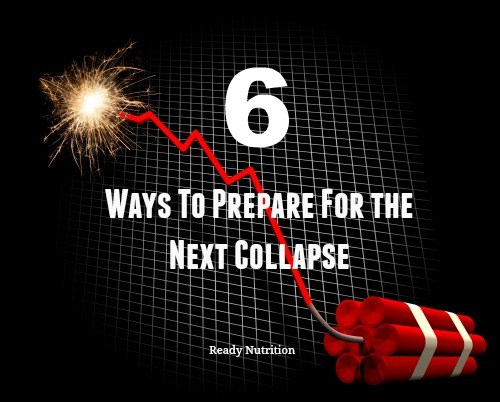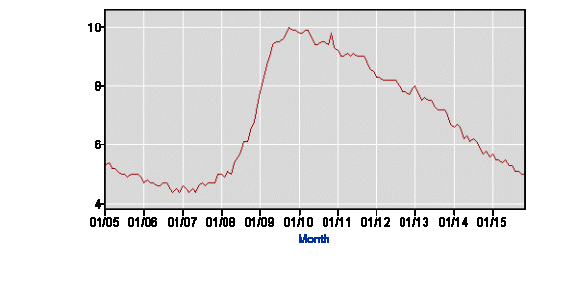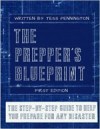The Whole Thing is About To Come Unhinged: 6 Ways To Prepare For the Next Collapse
January 9, 2016
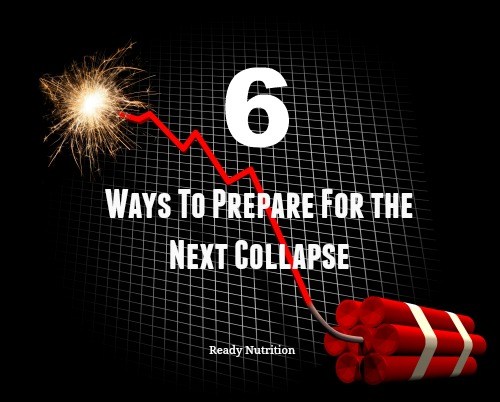
Speaking at an economic forum in Sri Lanka’s capital, Colombo, he told an audience that China is struggling to find a new growth model and its currency devaluation is transferring problems to the rest of the world, according to media. He added that a return to rising interest rates was proving difficult for the developing world.
The current environment reminded him of the “crisis we had in 2008,”The Sunday Times in Sri Lanka reported on Thursday morning. “China has a major adjustment problem,” he added, according to Bloomberg. “I would say it amounts to a crisis.”
The Reality is Stark and the Consequences are Clear
For years, Mac Slavo of SHTFPlan fervently warned his readers to stock up on physical assets and to prepare. His weekly economic posts proved of economic strife, but many believed he was all hype. It seems the day is finally here and we are looking at the possibility of this crisis being more unforgiving than its predecessor.
Mac states, “All you have to do is look around. The signs are everywhere. There is an industrial recession in China, lackluster holiday sales prove there is a consumer recession in the United States, real estate is stalled and is re-collapsing and stock markets around the world are set to buckle. If you’ve yet to prepare, the time is now because the whole thing is about to come unhinged.
What is about to occur is mirroring what happened in 2008. In fact, given the many national and world events that has plagued us in the past, it seems that this looming crisis on the horizon is the perfect storm for disaster.
Mac goes on to warn us. What to expect is to expect the unexpected because uncertainty is the name of the game. We don’t know how far markets will crash, what will happen with the U.S. dollar or what will happen with geopolitical tensions; and our way of life could change literally overnight. In the last 15 years, we’ve seen what systemic breakdown does in countries like Greece, Cyprus, Venezuela and Argentina.
The lessons learned are clear – you better have supplies on hand. In Venezuela, for example, they couldn’t even get toilet paper or condoms. In Greece, people were lining up in droves to get expired food that grocery stores were throwing away, and perhaps just as significantly, access to lifesaving medicine was lost when Greek credit markets were locked up.
The reality is stark and the consequences are clear – there will be panic, confusion and violence. Are you ready for that?
If You’ve Yet to Prepare, the Time is Now
Unlike the recession of 2008, this economic beast will not be held off. There will be extensive amounts of wealth lost leading to drastic cutbacks by consumers. Moreover, you can expect massive job loss. In 2008 and 2009, the U.S. labor market lost 8.4 million jobs, or 6.1% of all payroll employment. This was the most dramatic employment contraction (by far) of any recession since the Great Depression (Source).
As well, you can anticipate food prices to increase even more than they have over the last few years. In fact, the price for food has drastically risen since the last recession; and according to this chart, prices are set to steadily increase with this next crisis.
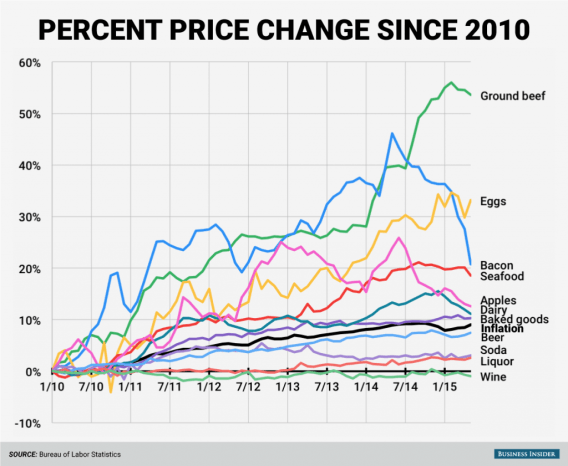
As Slavo points out, now is the time to invest in your future so that you can limit your exposure to this potential game changer.
- Get prepared. At the very least, buy food, products, and supplies in bulk to help you prepare for price inflation. If you have the means to do so, invest in 30-60 days worth of supplies so that you have everything you need. Having these on hand will help you if times become more difficult. You can use this free online series to begin creating a personal step-by-step preparedness plan for your family; or, buy the best-selling book, The Prepper’s Blueprint to use as a reference in your preparations. As well, if you can manage, get out of debt, organize your finances and find ways to free up some of your income for an emergency fund to help you create a personal safety net.
- Preserve wealth. Choose hard assets (dry goods, precious metals, land, livestock, skills, etc.) for long-term investments so they will hold their intrinsic value over time. Holding these types of investments will insulate you from inflation and other economic issues. Further, tying your money up in assets will help you avoid the inflating prices of food sources in the future, thus furthering your cause of self-reliant living.
- Invest in food. One thing analysts and financial pundits agree on is that, in general, commodities will continue to rise. When others are buying foods at inflated prices, you will be consuming your investment when it was purchased at a lower price. Using a combination of shelf stable foods, you can create a well-rounded food supply to depend on when an emergency arises. Further, these foods last a lifetime and would make sound investments for future planning. Ideally, you want to store shelf-stable foods that your family normally consumes, as well as find foods that are multi-dynamic and serve many purposes. Dry goods like rice, wheat, beans, salt, honey, and dry milk will provide you with an investment that will grow in value as prices rise, and also offer you peace of mind in case the economy further degrades. This food storage calculator can show you how much food should you need to store. As well, read Emergency Items: What Will Disappear First for more ideas.
- Learn how to grow your own food. In a homestead environment, a person wants the land to work for them as much as possible. Invest in fruit trees, seeds, and garden supplies. If you really want these peak foods, find a way to grow them yourself. Further, if you live in a rural area, consider investing in trees and bushes that will lure wild game. The trees and bushes can provide you with added sustenance and help you stock meat in your freezer. Here is a how-to guide for creating a garden quickly.
- Raise your own food. Rather than paying hard-earned money at the store for eggs, poultry and dairy—raise them yourself. Chickens are very easy to care for and can provide you with meat and eggs throughout the year. Additionally, you can find substitutions for these peak foods with a little research and ingenuity. For example, rabbits would be a suitable protein replacement and can even be raised in more urban areas. Similar to chickens, they don’t require much care and with some effort can be fed from the homestead’s garden or you can grow fodder. They are also great breeders and will provide you with ample amounts of meat. These are the 10 best meat rabbit breeds. As well, for the modest price of purchasing a fishing license, you can stock your freezer with fresh-caught fish.
- It all adds up. Again, do what you can to pay off debts ahead of time and work to restructure your outgoing funds to lower your expenses as much as possible. Debt only enslaves you further, and finding ways to detach from the system will break those shackles. As well, look into finding additional income streams. The more income you can set aside, the better off you will be. That way, if your main income dries up, you have a fall back income and won’t have to go into default.
We Have a Choice
This economic crisis is projected to hit much harder than the 2008 recession and will last longer. The truth of the matter is that we stand at the brink of a precipice and the choice is yours to make: you can ignore the tell-tale signs or get ready and brace yourselves for it. It’s time to get ready because it’s about to get real.
Tess Pennington is the author of The Prepper’s Blueprint, a comprehensive guide that uses real-life scenarios to help you prepare for any disaster. Because a crisis rarely stops with a triggering event the aftermath can spiral, having the capacity to cripple our normal ways of life. The well-rounded, multi-layered approach outlined in the Blueprint helps you make sense of a wide array of preparedness concepts through easily digestible action items and supply lists.
Tess is also the author of the highly rated Prepper’s Cookbook, which helps you to create a plan for stocking, organizing and maintaining a proper emergency food supply and includes over 300 recipes for nutritious, delicious, life-saving meals.
Visit her web site at ReadyNutrition.com for an extensive compilation of free information on preparedness, homesteading, and healthy living.
